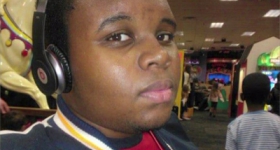Today's post is the last of a five-part series. First installment here.
Part 5
After dinner my sister Angie calls and, Wayne having left, the night nurse Sara offers to speak to her and take notes on my behalf. “Might help you get out faster,” she winks, and I am dumb with gratitude. Before I put the nurse on, I tell my sister that my story here is risk-taking, that I meant no real harm to myself, and that we must be consistent. I listen to Sara’s end of the conversation, and feel the beginnings of alarm when I hear her asking, “So why do you think your sister needs therapy?” When she hands me back the phone, I ask Angie what she’s said, and lose control when she tells me that she said I’d be okay but would “definitely need therapy.”
Definitely?? Definitely!? You made it sound like I’m fucked up, I hiss into the receiver, a hushed shriek. My sister says she’s not going to lie, that she wants me to get the care I need, and my body cramps with anger: Are you so stupid you think this is care? She grinds out slowly, “You can’t be upset with me right now.” I accuse her of making me stay here longer, and then am sobbing that I can’t, I can’t stay here. Don’t make me stay here. I tell her, sexual favors for my freedom, this is how it started. Oh sissie, she says, and I tell her worse, it’s like home. I’m sorry, she says, and I say sorry too, though I do not forgive her. The phone is in as visible an area as there is, and I am petrified that crying will make me seem unstable, prove that I am only faking, and they will keep me now even longer, but even as patients and nurses walk right by me, careful not to look, I cannot stop. Finally we say goodnight and I put the receiver up, but am unable yet to walk myself to some place more shielded. “Are you okay?” I hear, and looking up, see it is one of the more unstable patients I have never spoken to, a middle-aged blond generally derided for her constant raiding of the donated clothes closet. “It’ll be okay,” she says, and steadies me with a hug.
By the time Dr. Bien arrives, it is almost 7 p.m., and I am resigned to staying the night, no matter what I tell him. He strikes me as a thoughtful man, thin and bearded, says he has read my file but would like to hear it from me. In the quiet of the empty Group Therapy room, I tell him how I’ve always tried to follow the rules, meet expectations, but sometimes act out. How much my parents sheltered me, keeping me from everything they didn’t consider important, and not leaving the house meant that I couldn’t undergo the most fundamental socializations. But I left for college -- the first thing I fought for and would not surrender. There I learned basic social interactions the way a foreign student learns English: by figuring out their grammar and, through prodigious effort, trying to approximate the ease of native speakers. Making small talk called for the concentration of a tightrope walker, and I feared no final like I feared falling off the edge of a conversation into loneliness.
He listens intently and I feel, this man I can almost trust. He makes connections on my behalf, suggesting that risks appeal to me because they are exactly what I was sheltered and kept from as a child. Making friends, joining games, these things take risks. He tells me that speaking with me has been enlightening, that the language analogy in particular, he will think about. Pronounces the outlook good that I will go home tomorrow, and though I know the doctors are held to no set times, when I ask him approximately when he might be back, so that I know how much to wait, he checks his planner and says perhaps around 11 a.m., then promises me, “Before noon.” But before we leave the session, I have to tell him, have to make sure -- that being here is too much like home, that it is not good for me. He acknowledges this, and leaves for the night.
When I get back to the common room, I find Chulho has been waiting, with a special hardback copy of Animal Farm, and travel set of Renu, complete with contact lens case. He stands up with a grin to hug me hello, and I swear a lifelong oath of friendship in that beat. He has taken the BART back from downtown to the East Bay to get his car today, run out of gas, walked to two different gas stations to get a can and back to his car, drove to fill up, ran to the bookstore and drugstore, crossed the bridge to Marin, has not had dinner, but is here in time for visiting hours. On two hours’ sleep, family drama, and a fight with his girlfriend. We crack jokes about the hospital, but then I decide to tell him about the African doctor, and he loses all flippancy. Whatever else I do badly, I choose my friends very well. It is peace having someone to talk to who is undoubtedly on my side, after these two long days. I give him a tour of the ward. At the door of my room, looking at my bed, he says, “Oh man, Sam.” I say yeah, but smile that it’s not so bad. I walk him out to the front door before the official end of visiting hours, because he needs to eat. We wave through the glass, and then I take my new precious possessions back to my room, placing the book on the bed and the box of saline solution on the nightstand.
I am at ease now, like I have not been all day, and find that I’m happy to join Joanne, her visiting boyfriend, and another patient for Scrabble (which I hate), and TV (whatever’s on). We eat cereal with milk; I mix corn flakes with raisin bran and three packets of sugar. At some point I say something about having to wear the same underwear again tomorrow, and Joanne tells me there’s a washer and dryer here. Pushing some buttons, she shows me how to use them, and I change into my pajamas to throw everything but my bra in the wash. The washer’s already running by the time I get back, and hastily I toss my things in before realizing that someone else’s laundry is already in the soapy water. A little afraid of the worst, I come back to the TV area to wait and see. Joanne’s boyfriend has left and she is upset, asking us if it’s unreasonable that she’s jealous. Is he seeing someone else, we ask, and crying she says she doesn’t know, but that she freaks out anyway.
I have taken another sleeping pill for the night, and it is starting to work on me, though I still have to wait for my clothes to dry. Turns out I’ve shared a wash with Jerry, and we sit up talking, about dogs and house paint, until the timer goes off.
- Wednesday, March 30
This morning at breakfast call I ask the nurse how long breakfast will be served, and she offers to set my meal aside for me. I’ve decided to eat, because waking up early and waiting ’til noon, the hunger gets distracting. Yesterday the cafeteria left menu options for us to sort through, and mark our orders for each meal. But as the other patients gripe and I soon find, the items we circle bear no clear relation to the things that appear on our plates, even though the trays are individually marked with our names.
This morning again I shower and change, ready to go. I am a little insufferable in my elated anticipation of going home, but it is hard to suppress. Joanne is still out of sorts today, sullen since last night. She badly wants to leave today but isn’t sure she’ll be allowed out. For most of the morning, in between snatches of conversation with Jerry or Greta, I read my Orwell by the window, in the sunlight. When the patio opens later, I go outside, doctor’s brand-new authorization.
We are all having lunch when Dr. Bien comes to get me. Abandoning my tray, I follow him to the consultation corner. He says a little ruefully, “Almost made it, twenty after,” and I realize with wonder that he’s apologizing for being late. He asks me how I’m doing, notes with approval that I’ve set up an appointment with a therapist, someone to see when I get out of here. (They like for patients to have an infrastructure set up to catch us when we leave; beaming a kind of ‘I told you so’ that the doctor was likely to release me soon, Wayne had facilitated that call.) Our meeting is short. Asked what I am thinking, I tell him that I’ve begun to wonder what this experience will mean to me. You mean starting from the bridge, he suggests, and I say not really. It’s more about this stay. Had this not happened, the bridge would probably have been one more time that I climb up, and climb back down, returning without change. But this changes things. How it changes things, I don’t yet know, but it is not a lie.
From Monday at 5 pm until this conversation is about 43 hours. But it isn’t until 2:30 in the afternoon that I am able to leave, sitting at the white phone by the door nearly that entire time, loath to walk myself back into the heart of the ward unnecessarily. In the meantime, Jerry is released, into the custody of the Marin County Police Department. He walks out past the nurses’ station, bidding people farewell, and I give him a hug for luck. I had planned, when my ride came, to find Chris, Greta and Joanne, but when it is time, I decide to leave without saying goodbye.
* * *
Ask a Model Minority Suicide is
a series on mental health. Introductory post
here.
Resource Guide here.
Go here
to see all posts in this series.
Comments, questions, or stories can be posted below -- or sent privately to Sam at aamms[at]hyphenmagazine[dot]com.









Comments